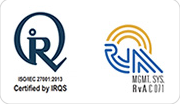Corporate legal departments understand the importance of formal evaluations processes for their legal tech, and have been closing the gap between merely keeping track of metrics and implementing a more fully structured assessment of their tools.
Bloomberg Law
A Bloomberg Law article notes how important it is for legal departments to use “metrics to follow a formal process for evaluating legal tech.” This evaluation of legal tech “can help organizations unlock the full potential of their tech stack.”
Your legal department bought the legal technology to modernize legal processes. Evaluate your legal technology with metrics and evaluation processes to ensure that keeping your legal department efficient. With the economic downturn affecting business, your organization won’t be looking to implement any new technology, but rather leverage existing ones. Staying within tighter budgets while simultaneously staying efficient is the goal during a recession.
Establishing Legal Tech Metrics
According to Lexology, one of the key stages of legal tech implementation is defining success metrics. Your legal department and organization’s goals depend on your individual business requirements. You should also set down guidelines for adopting your legal technology, to understand how fast you need to incorporate processes and get them up and running.
Successful legal tech implementation lies in identifying your company’s legal goals and understanding how your team will approach the legal tech. Ask the relevant questions of your legal tech, including figuring out how you will evaluate its efficiency and progress. Output and timeliness matters in legal tech adoption.
Work with your legal tech vendor support team to find out ideal implementation and adoption timelines. If your legal tech is falling behind, get in touch with your vendor to help you stay on track. You should be able to leverage your legal tech to maximize output especially when budgets are tighter.
Beyond implementation of your legal technology, your department must focus on evaluating your legal tech. Monitoring your legal tech and assessing them periodically unlocks the full potential of your investment.

Evaluating Your Legal Tech
You can boost your legal department’s efficiency by checking your legal tech against metrics and ensuring that processes are still aligned with changing business goals.
Set Goals
When assessing your legal tech, you should be able to identify what tasks you can tweak to maximize efficiency of outputs. In addition, your evaluation must determine whether your legal tech is still relevant and helping you achieve your business goals. If it isn’t streamlining your processes, find out if there are add-ons or updates that you can make to your legal tech.
Establish Metrics
One of the most crucial aspects in legal tech evaluation is establishing metrics such as KPIs and workflows. Your department should be able to establish input and output metrics. Although there are many components to evaluate, generally, return on investment, time saved, or cost effectiveness are a few popular ones.
With each of the components of your legal tech evaluation to hand, you can detail what indicators the metrics you’ve set must hit. Creating a process document is an ideal way to track inputs and outputs and see if they’re helping your organization meet its goals.
Hold Evaluation Sessions
The evaluation process should be repeated frequently, to monitor your legal tech and the value it’s delivering to your company. Set up sessions to review metrics and targets, and share the data across the organization with stakeholders.
Every session to measure metrics and gather feedback should be productive. For each session, expect to cover ways that your legal tech can be tweaked to improve outputs and reduce inputs.
Tweak to Meet Requirements
With intelligence collected from your evaluations and sharing sessions, you can process this information to find out what changes can be made to your tools or in your department.
You may focus on hosting training sessions, or meetings to discuss pain points and how best to address them. Although you most probably can’t update your legal tech tools yourself, this is where staying in touch with your vendor comes in handy. Your legal tech vendor can suggest updates or add-ons that stay within your budget but help your legal department stay efficient.







